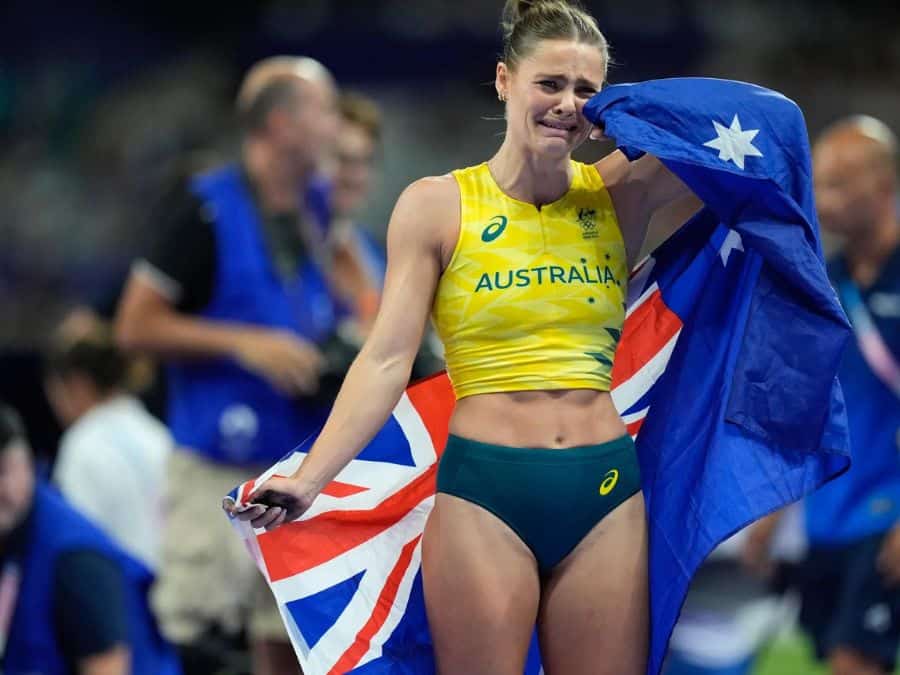Pole vault star Nina Kennedy claimed Australia’s 18th gold medal at the Paris Olympics, achieving the nation’s most successful medal haul in the history of the Games. Kennedy, 27, executed a flawless jump, clearing 4.90 meters with exceptional skill and poise. Unbeknownst to her at the moment, this leap secured her the gold medal.
This outstanding performance was part of an extraordinary Wednesday for the Australian Olympic team, which secured four gold medals and two bronze medals in a single day – the best in the nation’s Olympic history. The triumphs of Paris 2024 have solidified Australia’s status as a powerhouse in the sports world.
Kennedy’s victory is historically significant as she became the first Australian to win pole vault gold since Steven Hooker’s victory in Beijing 2008, and the first Australian woman to win this event, surpassing Tatiana Grigorieva’s silver from the Sydney 2000 Games.
The competition saw Kennedy start strong, easily clearing 4.40 meters on her first attempt, and then comfortably vaulting over 4.60 meters. A minor slip at 4.70 meters caused a brief moment of concern, but Kennedy quickly regained her composure and succeeded on her second attempt. She continued her impeccable performance, clearing 4.80 meters, 4.85 meters, and 4.90 meters all on her first attempts.
With only three competitors remaining – defending champion Katie Moon from the United States and Canada’s Alysha Newman – Kennedy found herself in the lead. Newman was unable to clear 4.90 meters, and Moon, after missing her first attempt at this height, opted to move to 4.95 meters. Both athletes failed their subsequent attempts, ensuring Kennedy’s victory without needing another jump.
“I knew first-attempt clearances at those high bars were crucial for gold,” Kennedy reflected. “I focused all my energy on those key moments, and that’s how I secured the win.”
Previously, Kennedy shared the gold medal with Moon at last year’s world championships after both failed to clear 4.95 meters. This time, she was determined to claim the top spot alone. “Deep down, I knew I wouldn’t share the gold this time. I wanted it outright,” Kennedy declared. “I’m thrilled to have accomplished my goal.”
Matthew Denny further boosted Australia’s medal count with a bronze in the discus, achieving a throw of 69.31 meters. This marked a redemption for Denny, who narrowly missed the podium in Tokyo by five centimeters. Jamaica’s Rojé Stona won the gold with an Olympic record throw of 70.00 meters. Denny’s accomplishment is noteworthy as it is the first Olympic medal for an Australian in a throwing event.
The day began with a bronze medal in the mixed relay race walk marathon for Jemima Montag and Rhydian Cowley. The afternoon witnessed a cascade of gold medals: Matthew Wearn in sailing, Keegan Palmer in skateboarding, and the men’s team pursuit in cycling. This remarkable collection surpassed Australia’s previous best day at the Olympics, where they secured four gold medals in Tokyo.
Nina Kennedy’s golden leap not only symbolizes her individual success but also the soaring achievements of Australia’s athletes in Paris, making these Games a historic triumph for the nation.
